The Promise of Natural Heart Support
Turkey tail heart health benefits are gaining scientific attention as research reveals this functional mushroom's potential cardiovascular effects:
| Turkey Tail Heart Health Benefits | How It Works |
|---|---|
| Reduces oxidative stress | Contains 35+ phenolic compounds with antioxidant properties |
| Supports healthy inflammation response | β-glucans modulate immune cell activity |
| May improve lipid profiles | Extracellular polysaccharides (EPTV) shown to restore cholesterol levels in animal studies |
| Potential blood pressure support | Induces nitric oxide production, promoting blood vessel dilation |
| Promotes gut-heart connection | Acts as prebiotic, supporting beneficial bacteria linked to heart health |
When cardiovascular disease remains the leading cause of death globally, people are increasingly turning to natural approaches to support heart health. The humble turkey tail mushroom (Trametes versicolor), with its distinctive fan-shaped, multicolored appearance, has been used for centuries in traditional Eastern medicine as a general tonic for wellness. Today, modern research is beginning to validate what traditional healers have long suspected – that turkey tail may offer meaningful support for cardiovascular health.
While prescription medications remain essential for managing diagnosed heart conditions, functional mushrooms like turkey tail are emerging as potential complementary supports for maintaining already healthy cardiovascular systems. The mushroom's unique bioactive compounds – including polysaccharopeptides (PSP and PSK), β-glucans, and numerous antioxidants – appear to work through multiple pathways that may benefit heart health.
I'm Brandi Garden, co-founder of Eversio Wellness, and my personal journey with turkey tail heart health began after experiencing my own health challenges and finding the transformative potential of functional mushrooms for overall wellness.

Turkey Tail Basics: A Time-Tested Tonic
Walk through any forest in North America, Europe, or Asia, and you might spot them – vibrant, fan-shaped fungi fanning out from dead logs and tree stumps like the plumage of wild turkeys. Turkey tail mushroom (Trametes versicolor) is far more than just a woodland decoration. This humble polypore has been quietly supporting human health for centuries, offering a treasure trove of bioactive compounds that modern science is only beginning to fully appreciate.
What makes turkey tail heart health benefits so interesting is that unlike many supplements that rely on a single active ingredient, turkey tail provides a complex symphony of beneficial substances working in harmony together.
Identification & Key Compounds
You'll recognize turkey tail mushrooms by their distinctive multicolored, fan-shaped caps with concentric rings of brown, tan, gray, and white – truly resembling a wild turkey's tail. But it's what's inside these beautiful fungi that really matters for health:
β-glucans are perhaps the most studied compounds in turkey tail, known for their immune-modulating effects and emerging research suggesting potential cardiovascular benefits. These complex polysaccharides form the backbone of turkey tail's therapeutic properties.
Polysaccharide-K (PSK) and Polysaccharide Peptide (PSP) are unique protein-bound polysaccharides found almost exclusively in turkey tail. These heteropolysaccharides have been extensively researched, particularly in Asia, for their remarkable immune-supporting properties.
Turkey tail is also packed with phenolic compounds – over 35 distinct varieties that function as potent antioxidants, helping to neutralize free radicals that can damage cells and contribute to cardiovascular issues.
The mushroom's flavonoids, including quercetin and baicalein, have demonstrated impressive anti-inflammatory properties that may help support vascular health and reduce inflammatory markers associated with heart disease.
While you can forage for turkey tail in the wild (its distinctive appearance makes it relatively easy to identify), we always recommend purchasing properly sourced supplements to ensure safety, consistent potency, and optimal extraction of these beneficial compounds.
Historical Uses for Vitality
Long before modern science began exploring turkey tail heart health benefits, traditional healers recognized this mushroom's special properties. In traditional Chinese medicine, turkey tail (known as Yun Zhi) has been valued for centuries as a powerful qi-tonic – believed to strengthen vital energy and support overall wellness.
Ancient healers would typically prepare turkey tail as decoctions or teas, allowing hot water to extract the water-soluble polysaccharides. These preparations were used to promote longevity and vitality. While they lacked our modern understanding of β-glucans and heteropolysaccharides, these early practitioners recognized turkey tail's ability to support the body's natural resilience.
What's fascinating is how modern research is now validating many of these traditional uses. The compounds that traditional healers were unknowingly extracting through their tea decoctions are the same ones being studied today for their potential to support cardiovascular health, immune function, and overall wellbeing.
At Eversio Wellness, we honor this long tradition of turkey tail use while embracing modern extraction methods that ensure you get the full spectrum of beneficial compounds. Our Defend Now capsules capture the essence of this time-tested tonic in a convenient, potent form – allowing you to experience the benefits that traditional healers have valued for generations.
Why Researchers Are Paying Attention
Modern science is increasingly validating what traditional healers have known for centuries about turkey tail mushrooms. A growing body of evidence suggests this humble forest fungus may offer meaningful support for cardiovascular wellness, with researchers uncovering multiple mechanisms that could explain its benefits.
The pathways through which turkey tail heart health benefits may occur are interconnected and fascinating:
Oxidative Stress & Inflammation—Root Drivers of Heart Disease
Oxidative stress and chronic inflammation are now recognized as fundamental drivers in the development and progression of cardiovascular disease. Turkey tail mushroom contains an impressive array of antioxidant compounds that help neutralize free radicals and reduce oxidative damage to heart tissues.
One study found that ethanol extracts of turkey tail demonstrated remarkable free radical scavenging abilities. The researchers measured what's called IC50 values—the concentration needed to inhibit 50% of free radicals—and the results were impressive: 5.6 μg/mL against DPPH radicals, 5.0 μg/mL against superoxide radicals, and an especially potent 0.6 μg/mL against hydroxyl radicals.
The flavonoid quercetin, present in turkey tail, has been extensively studied for its anti-inflammatory effects. It appears to modulate cyclooxygenase (COX) and lipoxygenase (LOX) enzymes, which are involved in producing inflammatory compounds in the body.
The anti-inflammatory properties of turkey tail mushrooms stem from their β-glucan content, which helps regulate inflammatory cytokines including nitric oxide, interleukins, TNF-α, and INF-γ. These compounds work by maintaining balanced inflammatory responses throughout the body—a critical factor for cardiovascular health.
Cholesterol & Lipid Profiles
One of the most promising areas of turkey tail heart health research involves its potential effects on cholesterol and lipid profiles. Liftd LDL cholesterol and triglycerides are well-established risk factors for heart disease, making any natural compound that can help maintain healthy levels particularly interesting to researchers.
A noteworthy study published in the scientific journal Current Microbiology found that extracellular polysaccharides from Trametes versicolor (EPTV) improved liver index, serum lipid profiles, and body weight in high-fat diet-induced hyperlipidemic mice. The researchers observed that EPTV effectively restored liftd levels of low-density lipoprotein, triglycerides, and total cholesterol toward normal ranges.
Blood Pressure & Vascular Function
Another exciting area of research involves turkey tail's potential effects on blood pressure and vascular function. High blood pressure is a major risk factor for heart disease, stroke, and other cardiovascular problems.
Turkey tail mushrooms contain compounds that may induce nitric oxide production in the body. Nitric oxide is a vasodilator that helps relax blood vessels, potentially leading to improved blood flow and lower blood pressure—a key factor in maintaining heart health.
The gut-heart connection is another area where turkey tail shows promise. As a prebiotic, turkey tail mushrooms support beneficial gut bacteria that have been linked to improved heart health markers. This emerging area of research highlights how turkey tail's benefits may extend beyond direct cardiovascular effects to include whole-body systems that ultimately support heart wellness.
What the Evidence Really Shows (So Far)
While the research around turkey tail heart health is promising, it's important to take a balanced view of what science has finded so far. The potential benefits are exciting, but we should understand where the evidence currently stands.
Animal Models
Most of our understanding about turkey tail's cardiovascular effects comes from animal studies, which provide valuable insights but don't always translate directly to humans:
In rat models of metabolic syndrome, researchers found that Trametes versicolor heteropolysaccharides significantly reduced blood pressure and improved heart function. The rats showed notable improvements in cardiovascular markers after consistent supplementation.
Similarly, when researchers gave extracellular polysaccharides (EPTV) from turkey tail to mice with high-fat diet-induced hyperlipidemia, they observed improved lipid profiles. The mice showed reductions in cholesterol levels that suggested potential for supporting healthy blood lipids.
Perhaps most interesting was a study showing that aqueous extracts of turkey tail inhibited diabetic cardiomyopathy induced by cardiac fibrosis in rats. The mushroom extract exhibited both anti-inflammatory and antifibrotic properties, suggesting multiple pathways through which it might support heart health.
Human & Clinical Insights
Human research specifically focused on turkey tail for cardiovascular health remains limited. Most clinical studies have centered on its immune-supporting properties, particularly in cancer care.
However, some fascinating observations have emerged from these studies:
In clinical trials using PSK (a turkey tail extract) as an adjunct therapy for breast cancer, researchers noticed improved lipid profiles in some participants. While this wasn't the primary outcome being measured, it provides an intriguing signal that deserves further investigation.
Research Gaps & Next Steps
For turkey tail heart health benefits to be fully understood and validated, several important research gaps need to be addressed:
Well-designed human clinical trials specifically examining turkey tail's effects on cardiovascular markers are needed. These should be large-scale, randomized controlled trials that can provide definitive evidence.
Dose-response studies would help determine optimal dosing for cardiovascular benefits. Currently, we have limited information about how much turkey tail is needed to support heart health effectively.
Long-term safety data would be valuable. While turkey tail appears safe based on its long history of use and existing research, formal long-term safety studies would provide additional confidence.
Interaction studies examining how turkey tail compounds interact with common cardiovascular medications are also important. This information would help healthcare providers make informed recommendations.
The current evidence suggests that turkey tail may offer cardiovascular support through multiple mechanisms, including antioxidant protection, inflammation modulation, and lipid metabolism improvement.
Safe & Smart Ways to Add Turkey Tail for Cardiovascular Support
Adding turkey tail mushrooms to your wellness routine is a natural way to support heart health, but it should complement—never replace—medical care and heart-healthy lifestyle habits. If you're curious about exploring this fascinating fungus for its potential cardiovascular benefits, here's how to do it thoughtfully and safely.
Turkey tail offers several convenient forms to fit your preferences and lifestyle. Dual-extract capsules provide both water and alcohol-soluble compounds, ensuring you get the full spectrum of beneficial components—from beta-glucans to antioxidant phenols. For those who prefer a more versatile option, powders can be easily stirred into smoothies, soups, or even your morning coffee. Traditional enthusiasts might appreciate tea decoctions, which involve simmering dried turkey tail pieces for 20-30 minutes to extract their beneficial compounds—a method used for centuries in Eastern medicine. You can also use whole dried mushrooms to create rich, nurturing broths.
While dual-extract capsules offer standardized dosing and maximum convenience, all forms have their place depending on your preferences and lifestyle.
Finding Your Right Dose
When it comes to dosage, there's no one-size-fits-all approach specifically for heart health support. However, research and traditional practices suggest some helpful guidelines:
Most studies have used between 1-3 grams of dried equivalent daily for general wellness benefits. For context, clinical trials focused on immune support have safely used up to 9 grams daily without significant adverse effects. If you're new to turkey tail, starting with a lower dose (around 1 gram daily) and gradually increasing as needed is a sensible approach.
Always follow product label recommendations and, ideally, consult with a healthcare provider who can offer personalized guidance based on your specific health profile.
Potential Side Effects & Drug Interactions
Turkey tail has an excellent safety profile backed by centuries of traditional use, but it's not completely without potential effects. Some people may experience mild digestive discomfort like gas or bloating when first starting. You might notice darkened stools—a normal effect that isn't cause for concern. Taking turkey tail with food rather than on an empty stomach can help prevent occasional mild nausea.
More importantly, be aware of potential interactions with medications:
Blood thinners warrant caution due to turkey tail's mild anticoagulant effects. If you're taking medications like warfarin or aspirin, discuss with your doctor before starting turkey tail.
Immunosuppressants may be counteracted by turkey tail's immune-stimulating properties, which could be problematic if you're taking these medications for autoimmune conditions or after organ transplantation.
Antidiabetic drugs might work more effectively alongside turkey tail, potentially requiring dosage adjustments to prevent blood sugar from dropping too low.
Blood pressure medications combined with turkey tail could potentially create additive effects, leading to blood pressure dropping too low in some individuals.
Who Should Talk to Their Doctor First
While turkey tail heart health support is generally considered safe for most healthy adults, certain groups should definitely consult with their healthcare provider before starting:
Pregnant or breastfeeding women should exercise caution simply because we lack sufficient safety data for these populations.
People with autoimmune conditions need professional guidance since turkey tail's immune-stimulating effects could potentially influence their condition.
If you're scheduled for surgery, talk to your doctor about when to pause turkey tail use due to its mild blood-thinning effects.
Anyone taking prescription medications, especially for heart conditions, should discuss potential interactions with their healthcare provider.
Those with known mushroom allergies should obviously approach with caution or avoid turkey tail entirely.
The bottom line? When it comes to supporting your heart health naturally, turkey tail offers promising potential—but partnership with your healthcare provider ensures you're taking the safest, most effective approach for your unique health situation.
Eversio Wellness "Defend Now" Organic Turkey Tail Capsules
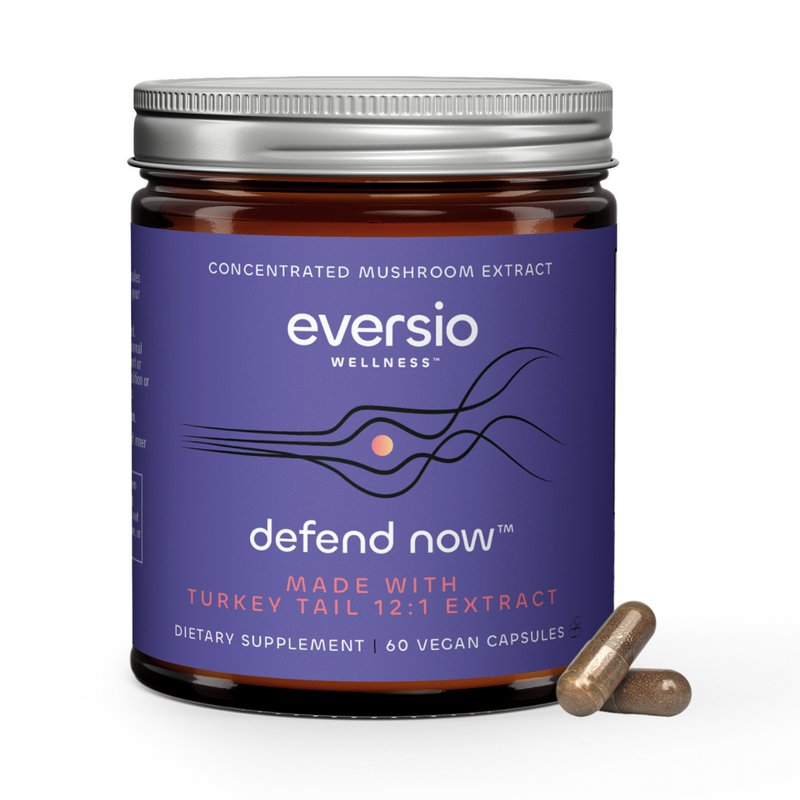 At Eversio Wellness, we're committed to providing the highest quality mushroom supplements to support your wellness journey. Our Defend Now Turkey Tail capsules exemplify this commitment through:
At Eversio Wellness, we're committed to providing the highest quality mushroom supplements to support your wellness journey. Our Defend Now Turkey Tail capsules exemplify this commitment through:
- 12:1 Dual-Extract Potency: Our extraction process concentrates the beneficial compounds, giving you the equivalent of 12 grams of raw mushroom in each 1-gram serving.
- 100% Organic Fruiting Bodies: We use only USDA Organic Certified whole fruiting bodies, not mycelium grown on grain, ensuring maximum bioactive compound content.
- Dì Dào Sourcing: Our mushrooms are grown in their spiritual and native homeland, providing the ideal environmental conditions for optimal potency.
- Third-Party Tested: Every batch is rigorously tested for purity, potency, and safety.
- No Fillers or Additives: Just pure, potent turkey tail extract in vegan capsules.
Our Defend Now capsules make it easy to incorporate turkey tail into your daily routine, with a convenient twice-daily dosing schedule that provides consistent support for your immune system and potentially your heart health.
Frequently Asked Questions about Turkey Tail & Heart Health
Can turkey tail mushrooms lower cholesterol on their own?
When it comes to managing cholesterol, many people wonder if turkey tail could be a natural solution. While animal studies have shown some promising effects on cholesterol levels, it's important to keep expectations realistic. Turkey tail shouldn't be viewed as a standalone treatment for high cholesterol.
The current evidence suggests that turkey tail may help support healthy lipid profiles, but it works best as part of a comprehensive approach. This means combining it with a heart-healthy diet rich in vegetables, fruits, and whole grains, maintaining regular physical activity, and following your doctor's medical advice.
I always remind my clients that natural supplements like turkey tail are partners in your wellness journey, not replacements for proven medical care. If you're concerned about your cholesterol, work closely with your healthcare provider to develop a complete plan that might include turkey tail as a supportive element.
Is turkey tail safe with statin or blood-pressure medication?
This is a question I hear frequently, and it deserves careful consideration. The truth is, there's limited research specifically examining how turkey tail interacts with cardiovascular medications. Some theoretical interactions could exist because of turkey tail's potential effects on blood pressure and lipid metabolism.
If you're currently taking statins, blood pressure medications, or other heart-related prescriptions, consult with your healthcare provider before adding turkey tail supplements to your regimen. Your doctor can help monitor for any potential interactions and adjust dosages if necessary.
In my experience, many healthcare providers are becoming more open to discussing complementary approaches like functional mushrooms, especially when patients bring well-researched information to the conversation. Be transparent about all supplements you're taking or considering, as this helps your medical team provide the safest, most effective care.
How long should I take turkey tail before expecting benefits?
Patience is key when working with functional mushrooms like turkey tail. Unlike pharmaceuticals that often produce immediate effects, turkey tail typically works gradually over time. Most people report noticing general wellness benefits within 2-4 weeks of consistent use, but cardiovascular effects may take longer to develop.
Scientific studies examining mushroom supplements for various health outcomes typically run for 8-12 weeks or longer to observe meaningful changes. This reflects the natural timeline for these bioactive compounds to influence your body's systems.
Consistency is absolutely essential—turkey tail works best when taken regularly as part of your daily routine. Think of it as a long-term wellness support rather than a quick fix. I recommend marking your calendar for a 3-month check-in after starting turkey tail to assess any changes you've noticed, and remember to keep your healthcare provider in the loop about your supplement regimen.
The most successful turkey tail users I've worked with are those who integrate it into a broader heart-healthy lifestyle and maintain realistic expectations about its supportive role in cardiovascular wellness.
Better Health, Backed by Nature
When we look at the potential of turkey tail heart health benefits, we're really seeing just one facet of this remarkable mushroom's role in supporting overall wellness. While research is still evolving, there's something genuinely exciting about the multiple ways turkey tail might support cardiovascular function – from fighting oxidative stress and calming inflammation to potentially helping balance lipids and support healthy blood pressure.
What I love about natural approaches to wellness is how they fit into the bigger picture of health. Turkey tail isn't a magic bullet, but rather a supportive player in a heart-healthy lifestyle that includes all the basics we know matter:
A colorful, varied diet rich in plants, whole grains, and healthy fats is your foundation. Regular movement – whether that's gardening, walking with friends, or hitting the gym – keeps your heart strong. Managing stress through practices like meditation, deep breathing, or simply spending time in nature helps your cardiovascular system function optimally. And of course, quality sleep and avoiding smoking remain crucial pieces of the heart health puzzle.
I always remind people that while turkey tail offers promising supportive benefits, it's not a replacement for medical care if you have a diagnosed heart condition. Your healthcare provider should always be your partner in developing an appropriate plan for your cardiovascular health – turkey tail can be part of that conversation, but it's not the whole story.
The science around fungi and heart health continues to unfold, and we're thrilled to be part of this exciting field where traditional wisdom meets modern research. As we learn more about how these remarkable organisms support human health, we remain committed to bringing you the highest quality mushroom products backed by both science and centuries of traditional use.
Click here to explore our range of mushroom capsules and blends at Eversio.



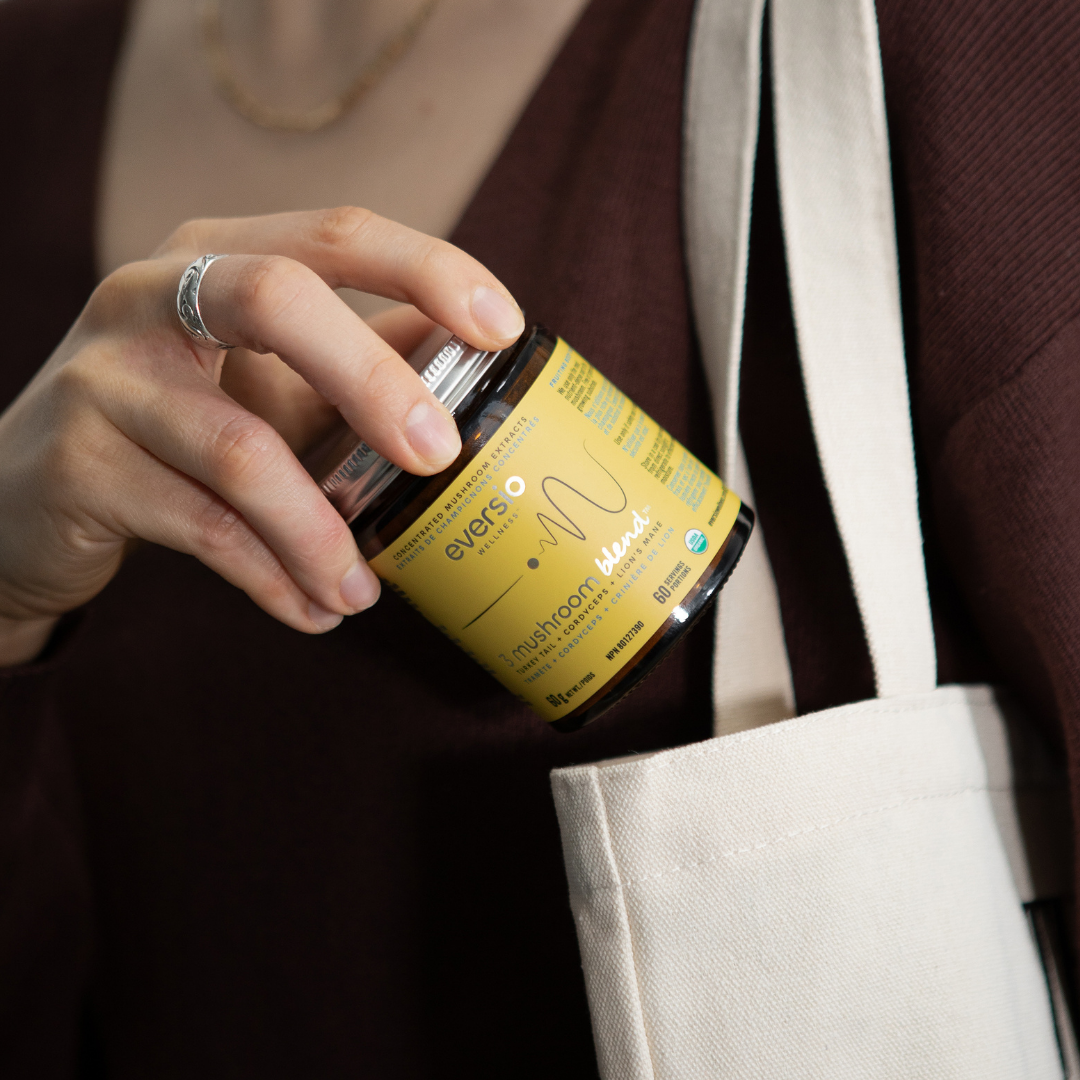

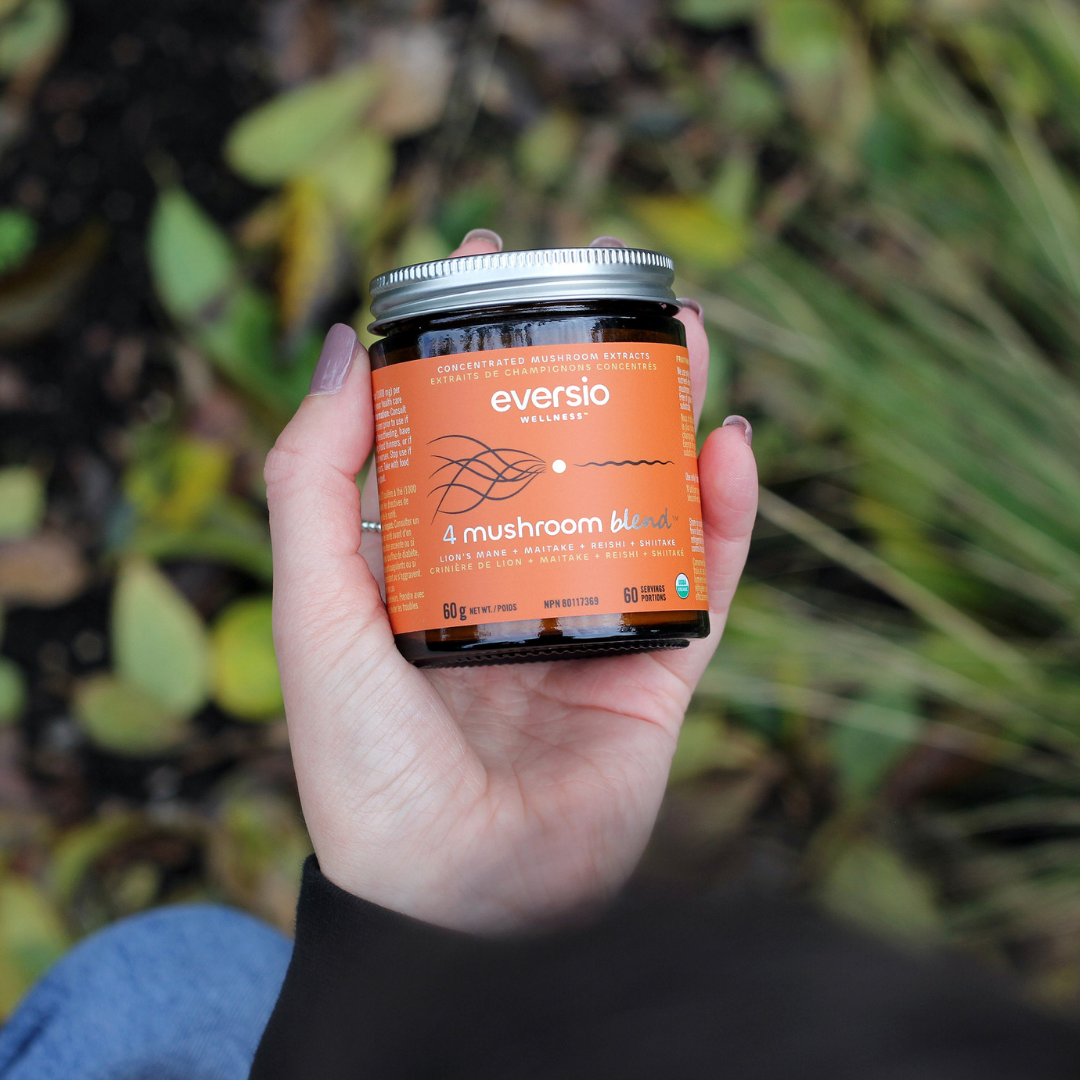

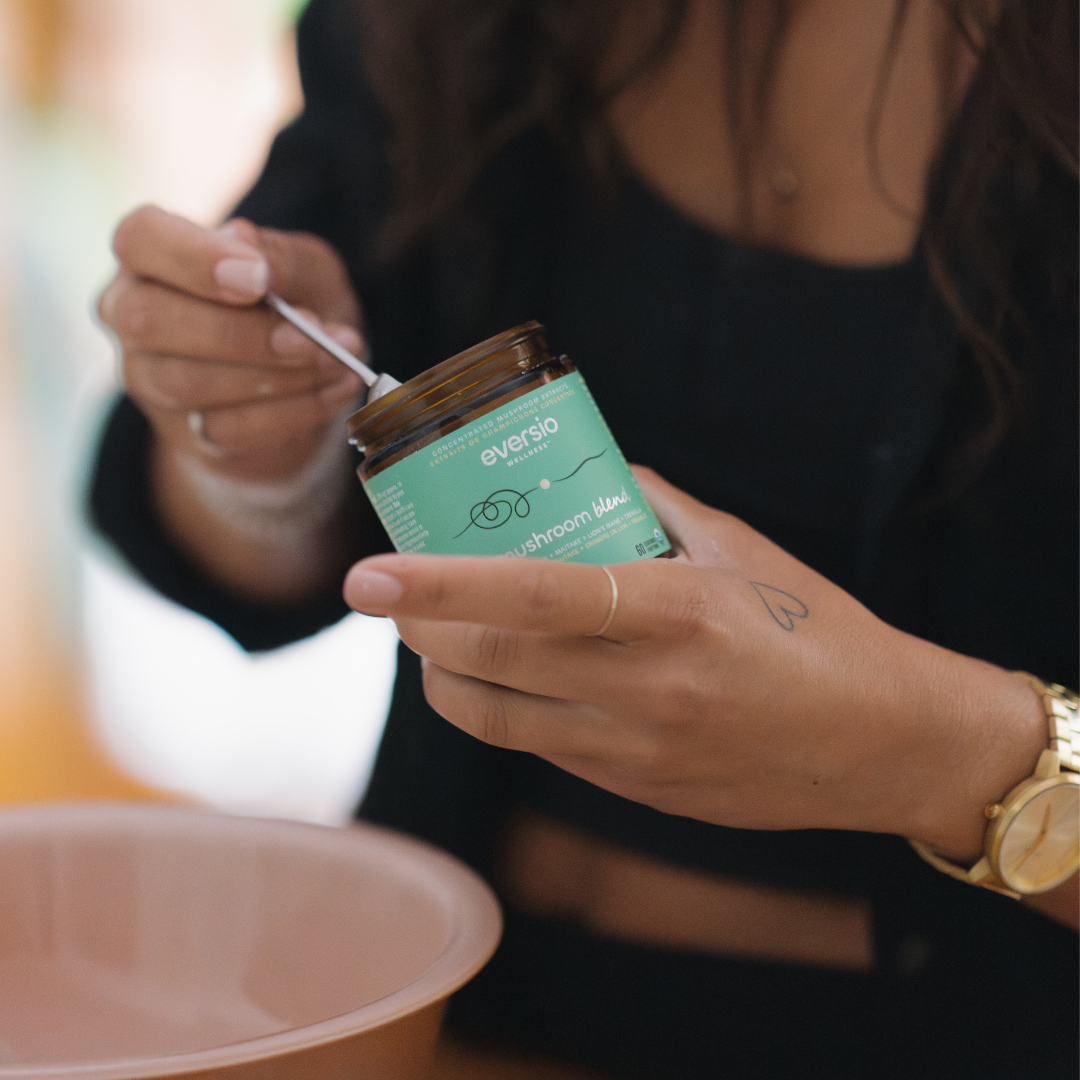

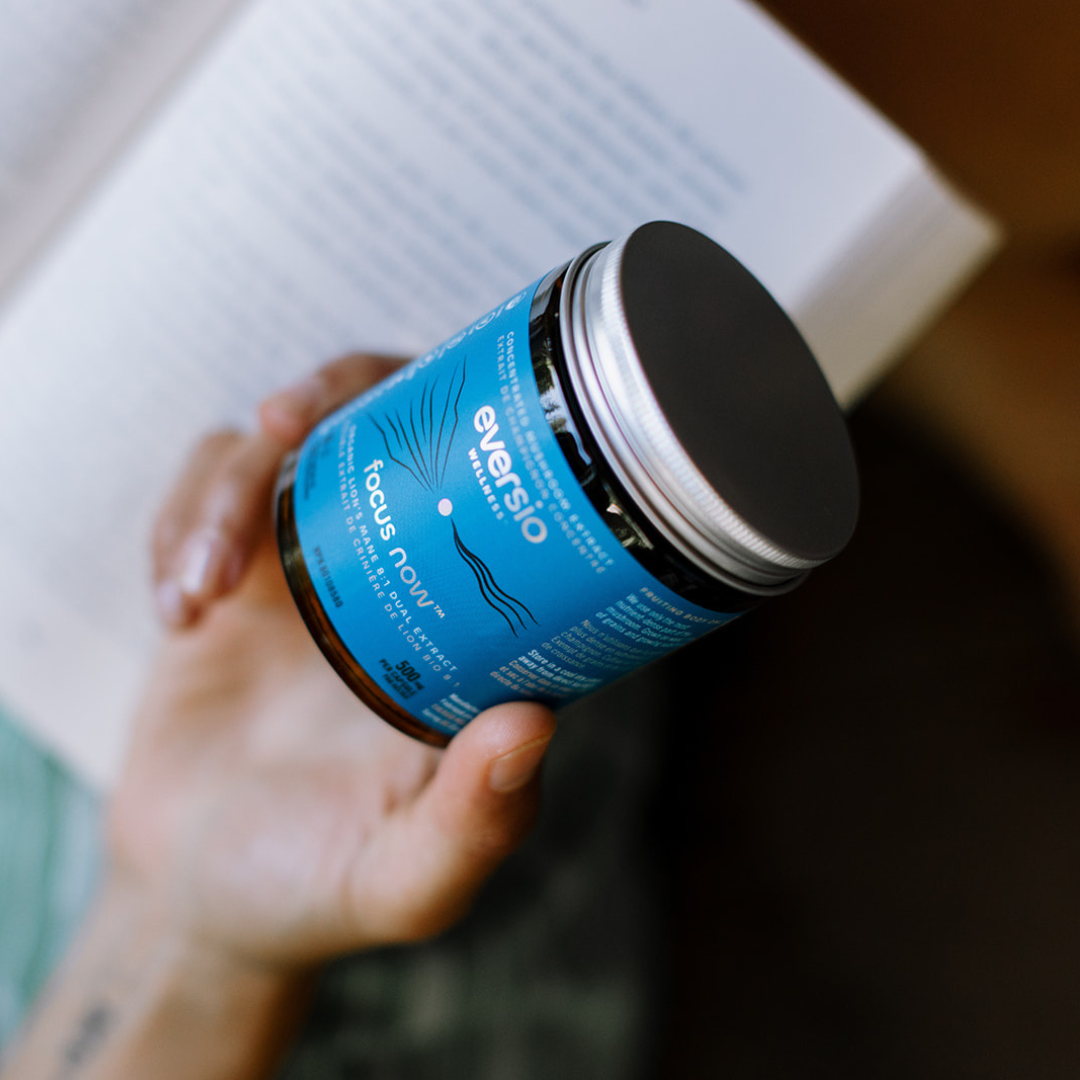

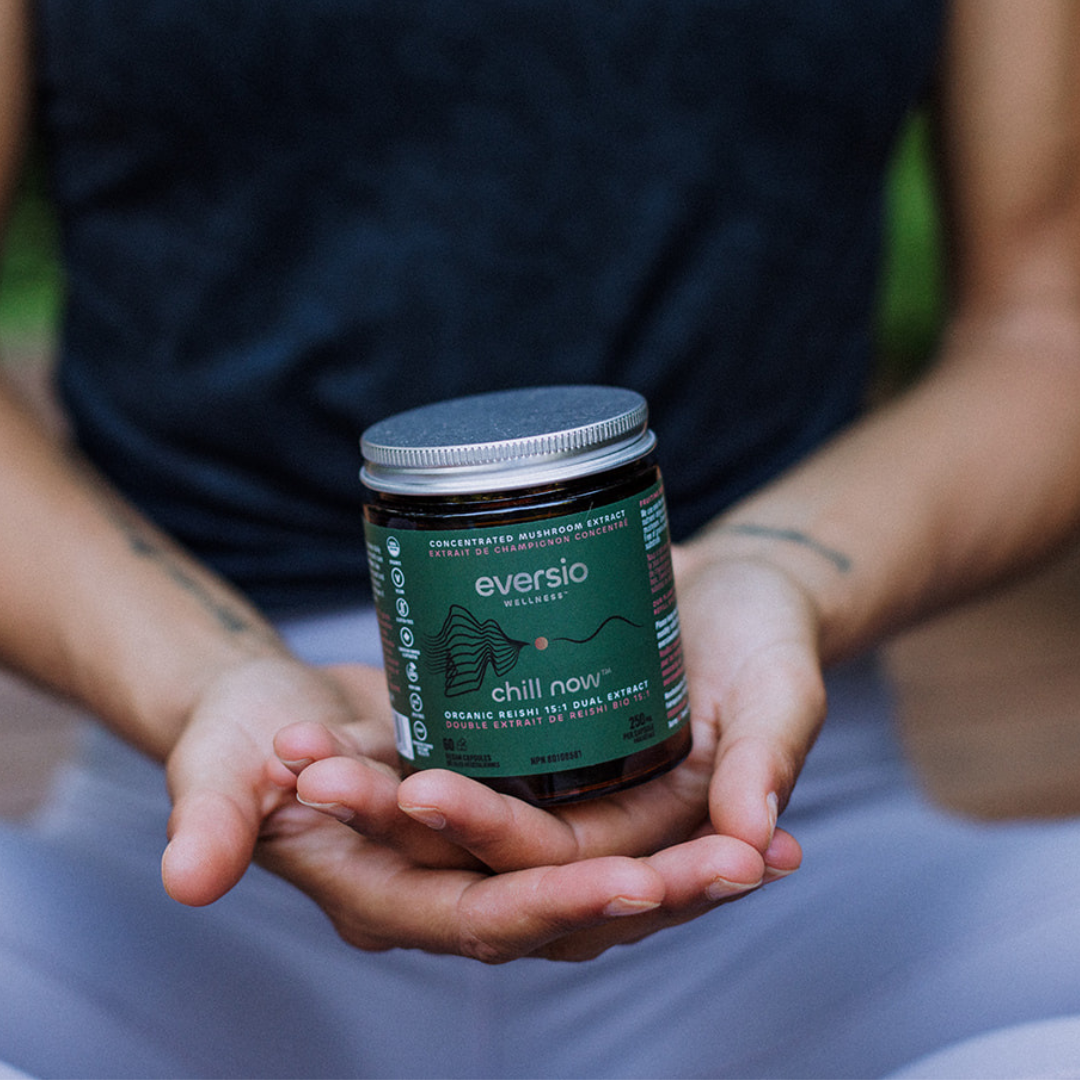


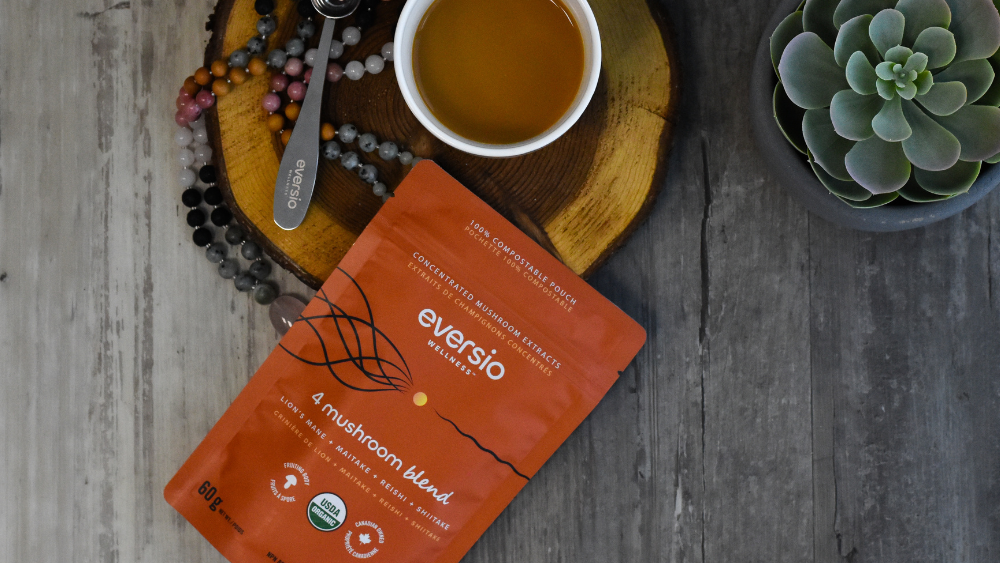





Leave a comment
This site is protected by hCaptcha and the hCaptcha Privacy Policy and Terms of Service apply.